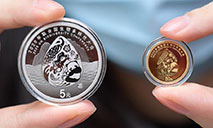Incentives for Taiwan's reunification with the Chinese mainland
The Chinese government resumed its exercise of sovereignty over Hong Kong and Macao in 1997 and 1999, respectively. The transfer of sovereignty was completely peaceful and conducted through negotiations. No single bullet was fired, no single person was killed, no single person was arrested, all was smooth and peaceful. Based on the theory of “one country, two systems” as innovated by the great leader Deng Xiaoping, the people of Hong Kong and Macao have enjoyed the highest degree of autonomy. Both are beneficiaries of China’s rise and especially the economic developments that have come in its wake. China has developed both territories by building modern infrastructure, pouring in investment, and creating unlimited new opportunities for jobs, businesses, and development. The standard of life for the average person in Hong Kong and Macao has improved significantly.
Taiwan is the only territorial issue that still remains unresolved. A few elements on the island are not willing to support reunification with the mainland. With backing from foreign masters, they are creating mischief and offering resistance to the realization of peaceful reunification.
Taiwan’s economy depends on the mainland. A huge number of Taiwanese have invested in China and transferred their businesses to the Chinese mainland. A significant community of Taiwanese are living in the mainland or otherwise traveling across the strait frequently.
Yet due to foreign interventions, a small group of Taiwanese are opposing peaceful reunification. Some of the Taiwanese are playing into the hands of enemies, who want to counter China and contain China.
Chinese President Xi Jinping, who also serves concurrently as general secretary of the Communist Party of China’s Central Committee and chairman of the Central Military Commission, delivered an important speech at a commemorative meeting marking the 110th anniversary of the Revolution of 1911 at the Great Hall of the People in Beijing, capital of China, on October 9. He said that the Taiwan question arose out of the weakness and chaos of the Chinese nation, and it will be resolved as national rejuvenation becomes a reality. "This is determined by the general trend of Chinese history, but more importantly, it is the common will of all Chinese people," he noted.
National reunification by peaceful means best serves the interests of the Chinese nation as a whole, including compatriots in Taiwan, said Xi, calling on compatriots on both sides of the Taiwan Strait to stand on the right side of history. Xi described secessionist moves aimed at "Taiwan independence" as the greatest obstacle to national reunification and a grave danger to national rejuvenation. "Those who forget their heritage, betray their motherland, and seek to split the country will come to no good end," he said, adding that they will be disdained by the people and condemned by history.
The Taiwan question is purely an internal matter for China, one which brooks no external interference, Xi noted. "The complete reunification of our country will be and can be realized," he stressed.
China is a responsible nation and has adhered to its commitments while strictly following the principle of “one country, two systems”. By their nature, the Chinese people are peace-loving and never like to engage in aggression or wars. The Chinese mainland has been observing a policy of patience for a long time, and expects that the people of Taiwan may eventually opt for peaceful reunification. Although the Chinese mainland has the capacity to take Taiwan by force, if necessary, it nonetheless prefers reunification by peaceful means through dialogue and negotiation.
However, in case of war, no foreign country will come to the aid of Taiwan. In fact, the role of the US is to instigate others and push them into a state of war, permitting themselves to stand on the sidelines as passive onlookers only. The US is not sincere with its intentions towards Taiwan, but instead uses the island as a means to an end, playing dirty politics and selling costly weapon systems to reap self-interested economic rewards to shore up its own ailing economy.
If the people of Taiwan are wise, then they must and will make the right decision. Accomplishing the task of a unified China will make them proud, too. In this way, they may also become beneficiaries of China’s continued development. Reunification, once completed, will most certainly provide a boost to the economy of Taiwan and improve the standard of life on the island. Looking ahead, there are many incentives for Taiwan and unlimited opportunities for all Chinese people upon realizing reunification with the mainland.
The opinions expressed in the article reflect those of the author, and not necessarily those of People's Daily Online.
Zamir Ahmed Awan is a senior fellow with the Center for China and Globalization (CCG) and a sinologist at the National University of Sciences and Technology in Pakistan. E-mail: awanzamir@yahoo.com.
Photos
Related Stories
- Tsai’s Double Ten speech a political farce
- DPP authority slammed for remarks touting "Taiwan independence"
- Xinhua Commentary: A new warning to Taiwan separatists and their supporters
- Xi says Taiwan question will be resolved as national rejuvenation becomes reality
- Compatriots across Taiwan Strait should stand on right side of history: Xi
- US troops’ secret presence in Taiwan island ‘no real threat,’ but could ‘bring China’s reunification closer’
Copyright © 2021 People's Daily Online. All Rights Reserved.










